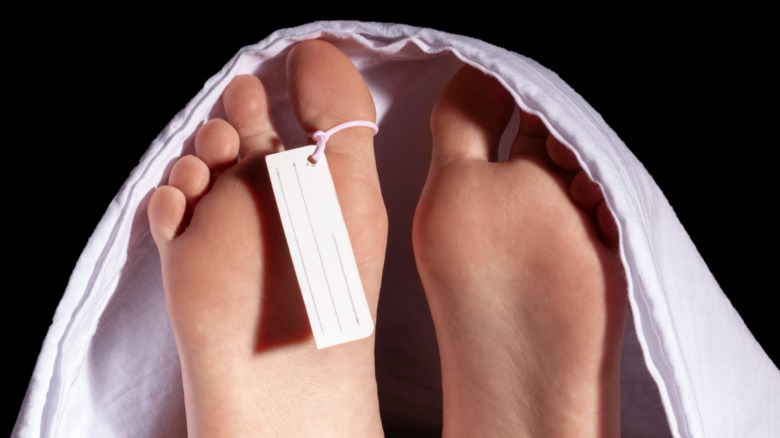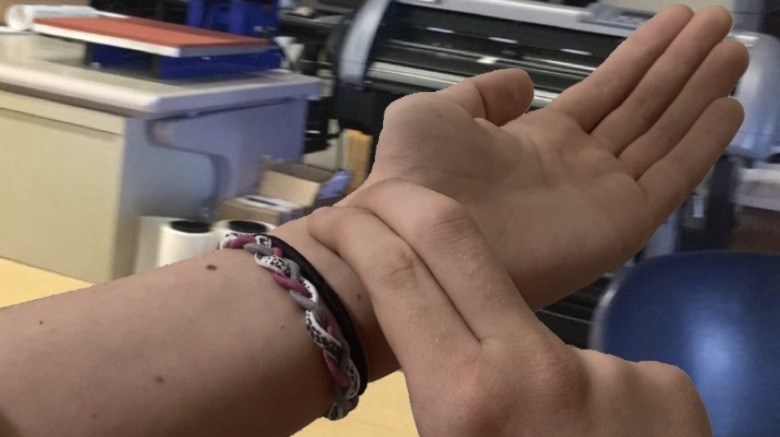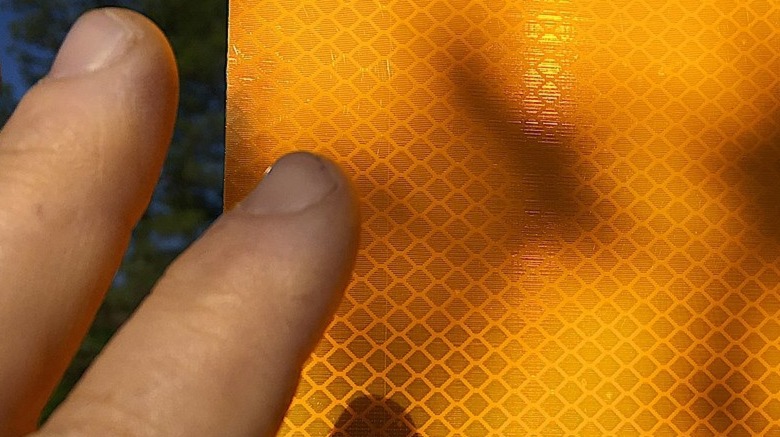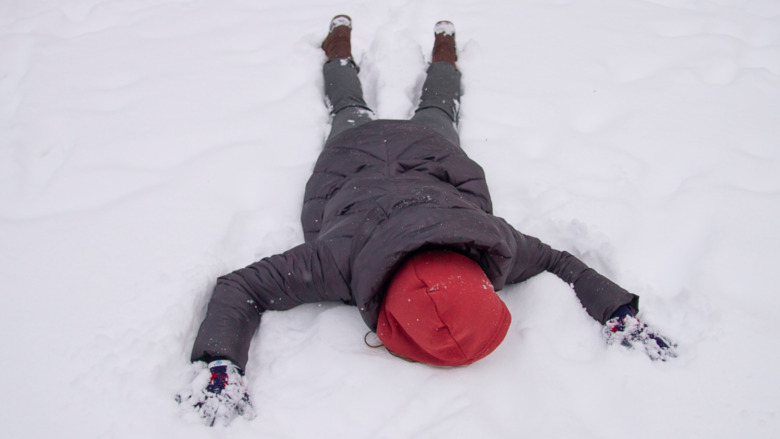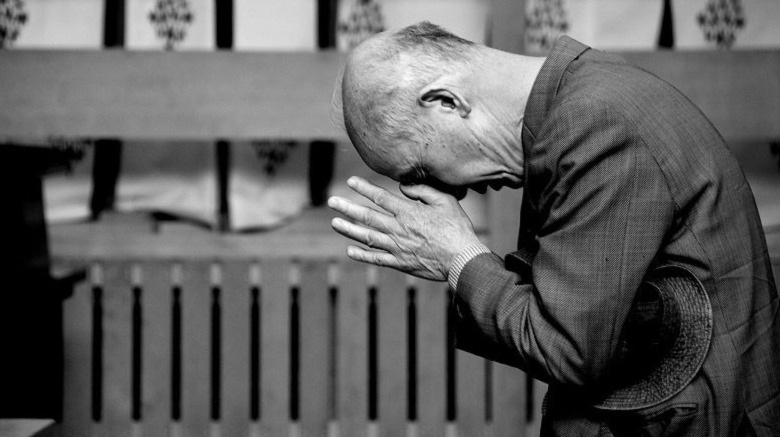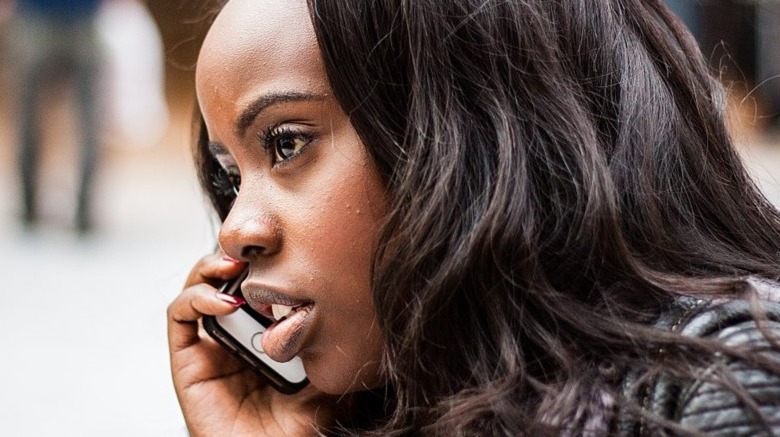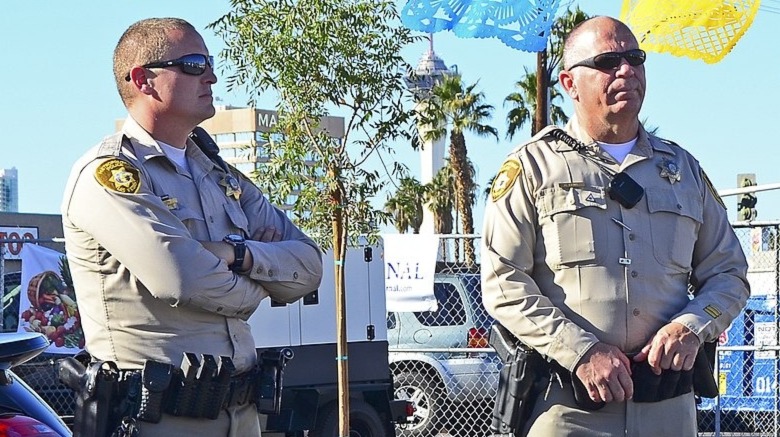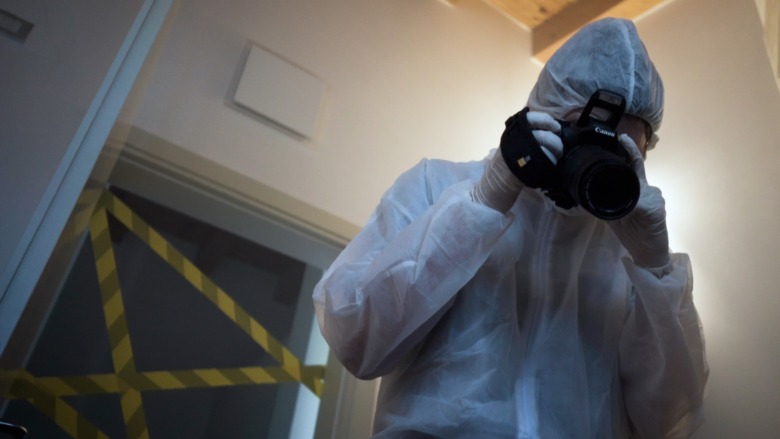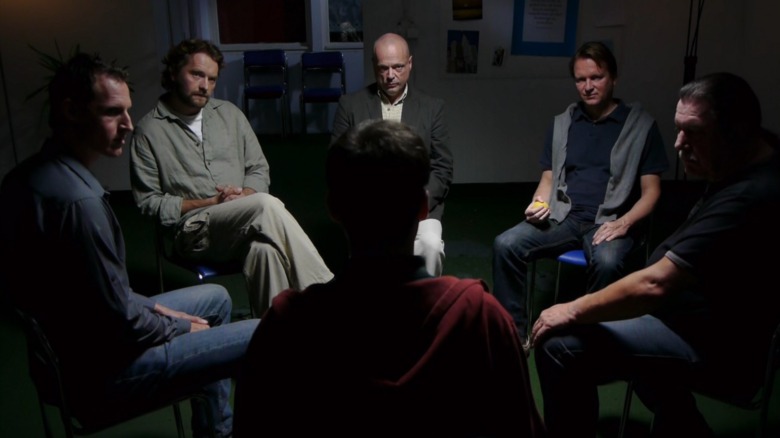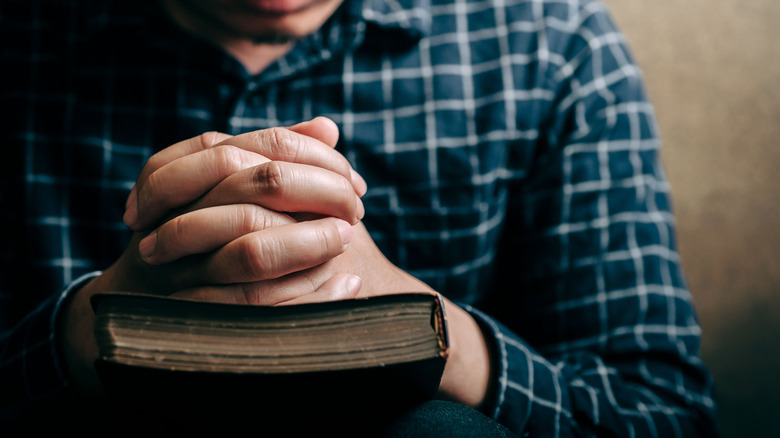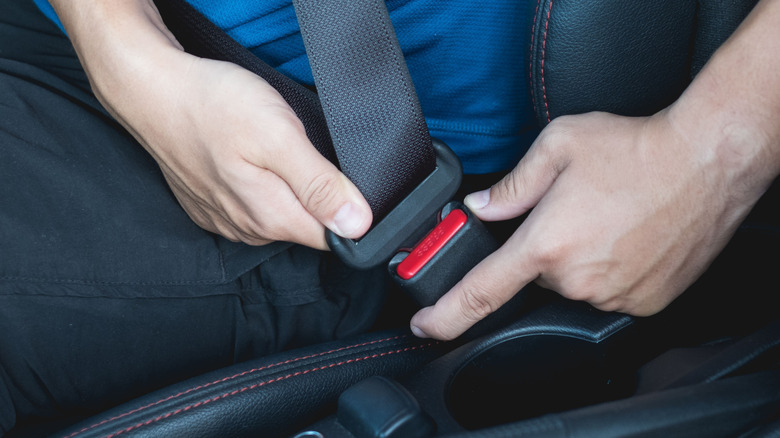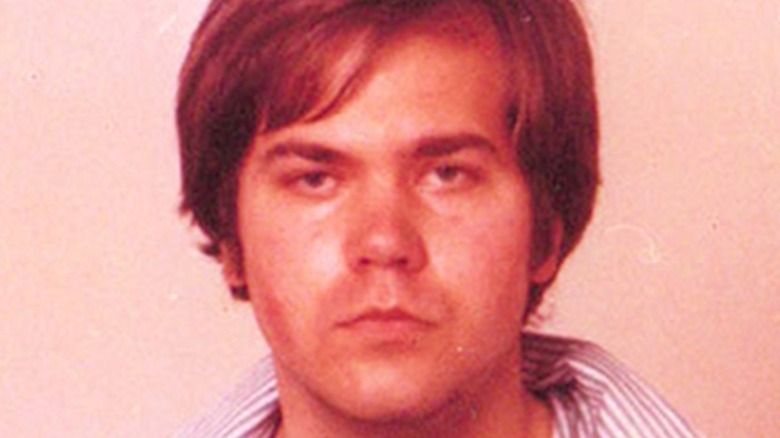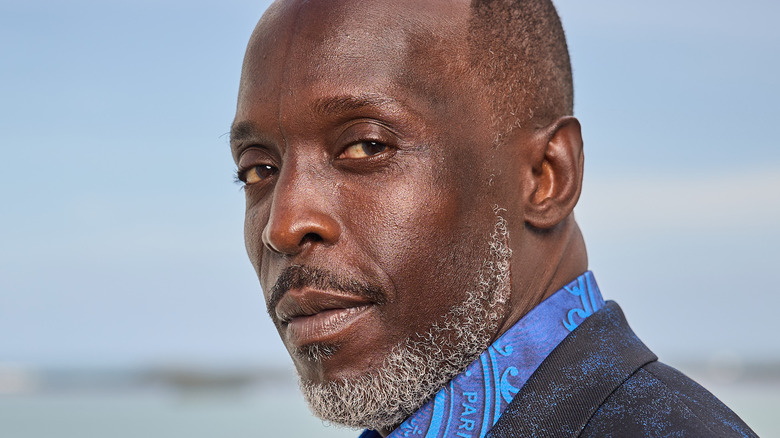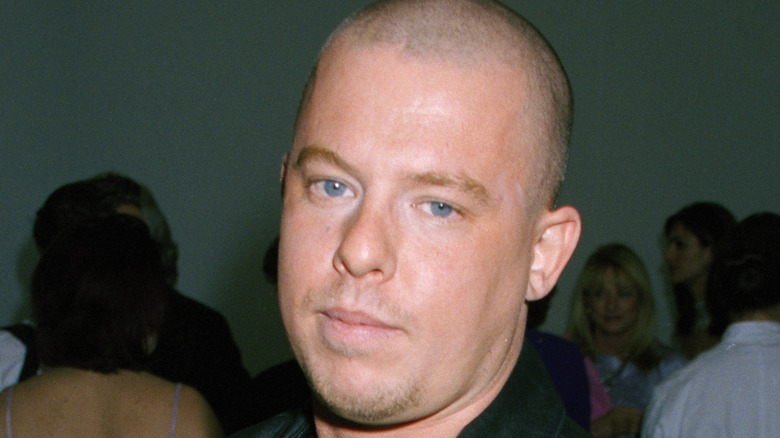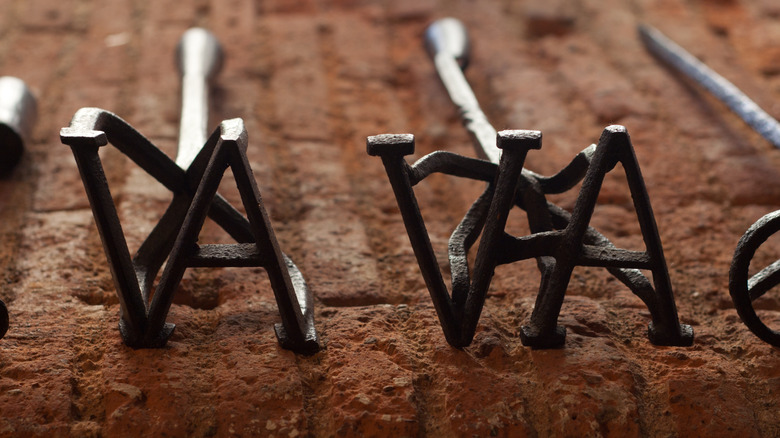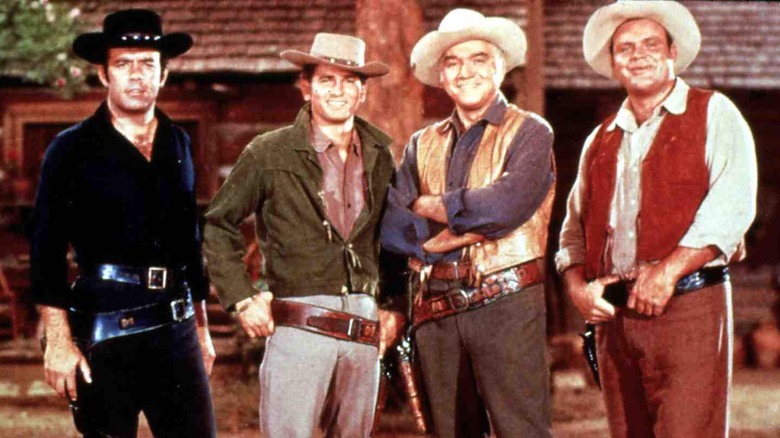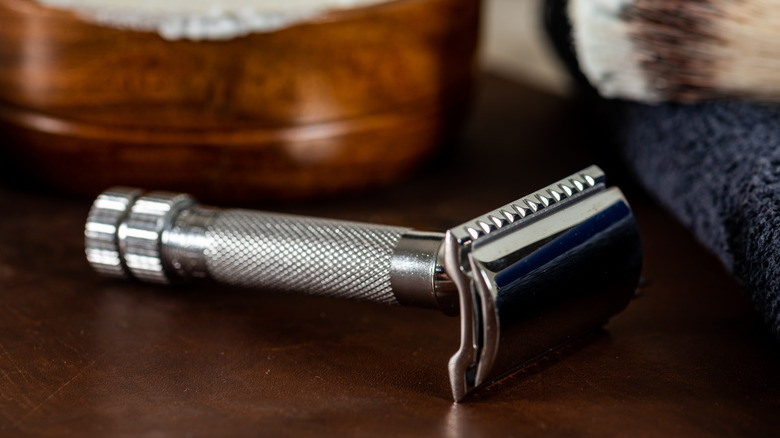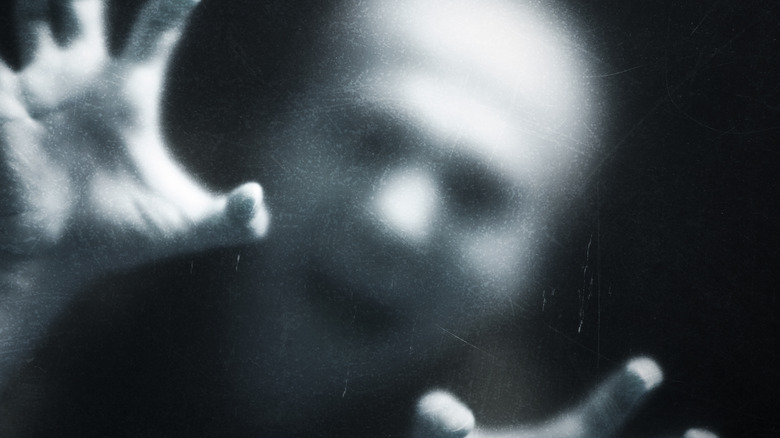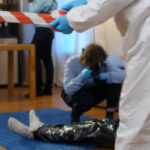
What You Should Do If You Find A Dead Body
Not many people stumble upon a dead body, but it does occur occasionally. For example, you may hear on the news about a jogger who spotted something unusual in a pile of leaves in the woods. According to criminal profiler David Canter (via The Guardian), the impact of finding a body is dependent on a variety of factors. One is its appearance and another is the body’s relevance to the person who found it. He said, “Many dead bodies that are not mutilated look quite waxwork-like, so are not especially disturbing, but if body parts are found, that can be more traumatic.”
Other factors that influence a person’s reaction to finding a body is how the face looks, whether the genitals are exposed, and the age of the deceased. “I think for everyone it is a dead child that is the most disturbing,” Canter noted. The writers at Vice reached out to people who had such an experience, and a 25-year-old person referred to as “Goose,” explained, “I found the experience so shocking that apart from calling an ambulance, I had no idea what to do. I felt really disoriented, like my brain hadn’t caught up to what my eyes were seeing.”
According to the CDC, 173,040 people die each year due to unintentional injuries. Others are victims of crimes, and still more die of natural causes. So there is a possibility you will find a dead body in your lifetime. If you happen to be unlucky enough to be one of those people, there are several steps you should take to ensure that the deceased is properly taken care of.
Stay calm and make sure you're safe
As already noted, it can be shocking to find or stumble upon a dead body, depending on the circumstances. You may experience a range of emotions, including sadness, repulsion, and even anger. These feelings are perfectly normal, says the U.S. Army Center for Health Promotion and Preventive Medicine. In fact, not having one of these responses would be unusual. Finding yourself in this type of situation is abnormal, so naturally you may go through several types of emotions about what you’re experiencing.
After you compose yourself, you need to make sure that you are safe and that there’s nothing in the area that could cause you harm, according to Aftermath, a professional crime scene cleanup company. While your personal safety may not be your top priority, whatever caused the deceased’s death may also pose a danger to you. Check your surroundings and make sure there’s nothing that will harm you. Look for fallen objects such as live wire, dangerous chemicals, and traffic, among other things. Once you know you’re in a safe area, you can take subsequent steps.
Confirm the death
It’s a good idea to check the body to make sure that the person is, in fact, dead instead of simply sleeping or passed out after a night of heavy drinking or drug use. You can do this by checking to see if the person is breathing or has a pulse, according to FindLaw attorney George Khoury. You can tell if someone is breathing by observing their chest to see if it moves up and down, instructs this CPR test website. Also, listen to see if you can hear the person breathing. You can also put your cheek near the individual’s face to feel for breath. Do this for about ten seconds.
When a person dies after a cardiac arrest, for example, it may appear as though they are still breathing. However, these are simply the body’s “last gasps” of air, and it’s not “normal” breathing. Another way to confirm a person’s death is by checking for a pulse in the wrist. Turn the hand so the palm is up, and place two fingertips on the wrist. You can also check for a pulse in the neck by pressing on either side of the windpipe, according to Medical News Today.
However, if it’s obvious that the person has been dead for a while, you don’t need to check that they’re breathing or have a pulse.
Don't touch anything
Do not touch anything when you come across a dead body, according to FindLaw. If you notice a weapon or believe a crime was committed, it’s particularly important that you leave everything as is and do not move or reposition the corpse. Investigators need as much evidence as possible in these situations so they can apprehend a suspect. According to Crime Scene Investigator Network, officers and others consider even the tiniest details, such as whether the lights are turned on or off and what the floor or ground looks like around the body.
Even from an investigative stand point, the first officer who arrives at a crime scene is instructed to make visual examinations and not alter the body’s position. Because it’s critical that evidence is preserved, only one person at a time is allowed to approach a body during a criminal investigation. So you can imagine the repercussions if you stumble upon a dead body and start moving things around. It can complicate the investigation and cause problems for the authorities.
Do not desecrate the body or take souvenirs
To desecrate means to violate or somehow disrespect the body. This includes actions such as dismemberment, disfigurement, and burning, according to Justia, an online platform for legal knowledge. Only licensed individuals or those directed by state agencies are legally allowed to examine the body, and gather and remove evidence. They can also perform an autopsy, use the corpse for medical educational purposes, and properly dispose of the remains. It is against the law to desecrate a body, according to the U.S. Army Center for Health Promotion and Preventive Medicine.
Other examples of desecration include stealing items from the deceased and misplacing or losing the remains, according to FindLaw. Family members, next of kin, or others may have legal recourse should they discover that someone desecrated the body of a loved one. A mortuary or funeral home can also be held liable if a body is desecrated while under its care. According to FindLaw, a Kentucky couple was once charged with abusing a corpse because they drove around for three hours with their dead friend who had overdosed. The couple never sought help despite passing several hospitals.
It's okay to make a joke
Often people who find themselves in uncomfortable situations end up making jokes or try to provide some levity to the situation. Humor is a normal response, even when the situation seems grave, no pun intended. The U.S. Army Center for Health Promotion and Preventive Medicine points out that humor is a great “safety valve,” and people who deal with crime scenes regularly during their work week often turn to graveyard humor to alleviate the stress. If you stumble across a dead body, you too may find yourself joking about the circumstances.
Graveyard humor is acceptable as long as it’s not too personal and isn’t disrespectful to the deceased. It’s okay, and not uncommon, to make a lighthearted joke at a crime scene. According to the report, “Humor Functions Within Crime Scene Investigations,” published in Sage Journals, “Humor served to reduce stress so that job tasks could be completed, and it was also used as a barometer of the investigators’ negotiation of the emotional burdens of such work.”
However, it’s important to make sure the jokes are not too inappropriate, because the person telling it may regret it for a long time afterwards.
Say a prayer if you want to
If you are a spiritual or religious person, you may be inclined to say a prayer for the deceased. Or you may have a ceremony you want to perform based on your religious background. That is fine, according to The U.S. Army Center for Health Promotion and Preventive Medicine. This type of ritual can make you feel better during a stressful situation. Whether you knew the deceased or not, prayer can help with grief and lift your spirit. It can help you connect with a spiritual power, Love To Know points out.
Many health workers say prayers after losing their patients, according to NurseBuff, and there are many different types of prayers you can say when you find a body — from Bible verses and scriptures to original, heartfelt benedictions.
Call 911
While you may not be legally obligated in all states to contact authorities if you find a dead body, most have laws in place that require you to do so within a certain period of time, according to Vice. This is especially true if the body you find is part of a crime scene. Some loopholes do exist, however, depending on where you live. John Hummel, the Deschutes County district attorney in Oregon, told Vice that in his state, “If you discover a corpse, you don’t have to do anything. Some people might say that that’s wrong, that the law should require that, but the law doesn’t require that.”
Still, most experts recommend calling 911 immediately after you find a body, according to FindLaw. Typically, the operator who answers your call will tell you what to do and will determine if there are any actions you need to take before help arrives. In 2011, a Michigan state senator drew up a bill that would fine people for not reporting a dead body. The person could face up to a year in prison and a $1,000 fine. Tonya Schuitmaker, the senator who introduced the bill, told Vice, “It’s unfortunate that you have to have such a law because you think it’s common sense.”
Or call the deceased's general practitioner
If the death was expected or involved an individual with a terminal illness or natural causes, a doctor can help you register the death and you don’t have to dial 911, according to the Bereavement Advice Centre. In fact, you can wait to call the doctor the following morning if the death occurred at night. If the reason for the death is obvious, the doctor will give you the proper documents you need in order to take the next steps.
At that point, you can call a funeral director to make arrangements, such as moving the body to a funeral home. Funeral directors, also known as morticians or undertakers, are typically available 24/7. They are constantly on call, according to State University. It’s not uncommon for them to hold evening or weekend funeral services, and many work over 40 hours per week.
However, if the doctor isn’t convinced that the death is due to natural causes or the person died unexpectedly, he or she will contact a coroner, who may want an autopsy.
Cooperate with authorities
After you call 911 you are expected to stick around until authorities arrive, according to FindLaw. Once they arrive on the scene, you will need to give them a statement of the events leading up to the discovery of the body and any other type of information you may have. You will be met by police, paramedics, and a medical examiner. They will be on scene to confirm the death and gather any evidence if it’s required.
A man named Trevor Saunders discovered the body of a woman named Gemma Adams, the victim of a serial killer, in 2006 while working as a volunteer fisheries warden in England. He told The Guardian, “I was there all day. I was the only member of the public allowed at the spot, because I had to show people around the lakes and the area. They used my caravan as an office. It was comforting to be part of the investigation, and it was night-time before they took Gemma away. It was a relief to me that she was now safe and dry.”
It is possible to anonymously report a death, but that can cause other types of complications. You may inadvertently become a suspect in the investigation. After you speak to the medical team, they will help you determine what you need to do next, according to Legal Voice. This is helpful because it can be stressful when you find a body, and if you receive a directive it’s easier than having to figure things out by yourself.
Notify family and friends
If you knew the deceased, the next step may be one of the hardest to take. Once you’ve made arrangements for the body, it’s time to let family and friends know about the death, according to the Bereavement Advice Centre. After you contact your loved ones, it’s also important to inform the deceased’s employer as well as the person’s doctor. You may have to cancel dental cleanings, meals on wheels, and other appointments.
Next, contact the deceased’s financial institutions, including the bank, insurance company, and credit card companies, among others. This is an important step because you want to minimize the potential for fraud. Also contact utility companies and the mortgage provider or landlord. If the person was retired, you need to reach out to government agencies that issue social security checks. Don’t forget to stop mail delivery if necessary. Many of these steps may be performed by the executor in the will, according to LegalZoom.
Clean up property and use a bioremediation company if necessary
If the unexpected death involves a loved one, it can be a challenge to clean up the area in which the deceased passed away, according to Aftermath. In addition to scrubbing the floor and disposing of unwanted items in the vicinity, you may also have to deal with the remnants of harmful bacteria caused by decomposition. Keep in mind that porous material, such as carpet, concrete, drywall, and wood, absorbs body fluids. These materials cannot simply be cleaned but instead must be handled by a bioremediation company.
Bloodborne pathogens are also a concern if the deceased had certain health issues. In order to clean, disinfect, and sanitize areas exposed to decomposition, home cleaning products are not going to work. Unfortunately, tiny amounts of biological material can create a major problem and make a home or apartment uninhabitable. Look for a company that specializes in decomposition and biohazard cleanup. That way you know the area will be cleaned up properly and will be safe to use. Plus, these companies are very discrete and sensitive to your needs, according to the Bereavement Advice Centre.
Get counseling
Finding a dead body can be life changing but not in a good way. Hanna Green of Victim Support in London told The Guardian that the person who finds a corpse can need as much support as the family who lost a loved one. “They are more likely to experience shock as a result of their discovery,” she explained. For some, the effects can last for years.
Trevor Saunders, who discovered the body of Gemma Adams, the victim of a serial killer, told The Guardian, “The police put me in touch with Victim Support, and it was enough for me just to talk to them on the phone. I am normally chirpy, but those who knew me saw I was depressed. No one can understand what it feels like unless it has happened to them.”
Losing a loved one unexpectedly can take a toll on your health. Sometimes it helps to talk to people about your feelings. If you can’t turn to friends and family for support, it’s a good idea to reach out to a professional or organization that can connect you with others who have been through a similar situation, according to the Bereavement Advice Centre.

Rules Astronauts Have To Follow Every Mission

Did Vladimir Putin Meet Ronald Reagan?
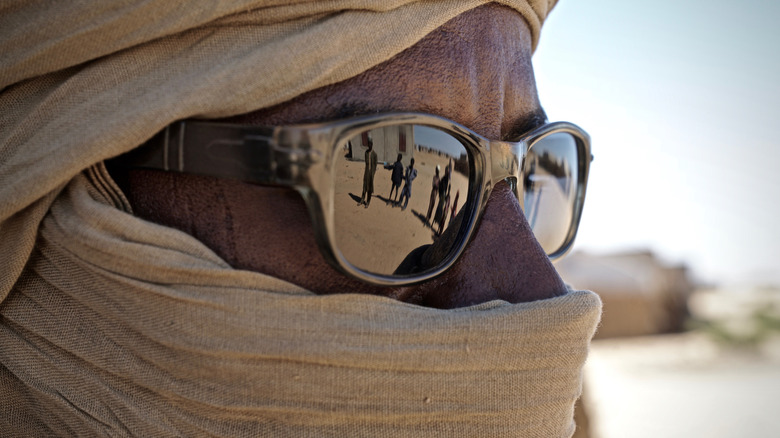
The Dark Truth About Radical Group Boko Haram

The Oldest Basilica Of The Western World

The Truth About The Time Capsule Under The Hollywood Walk Of Fame
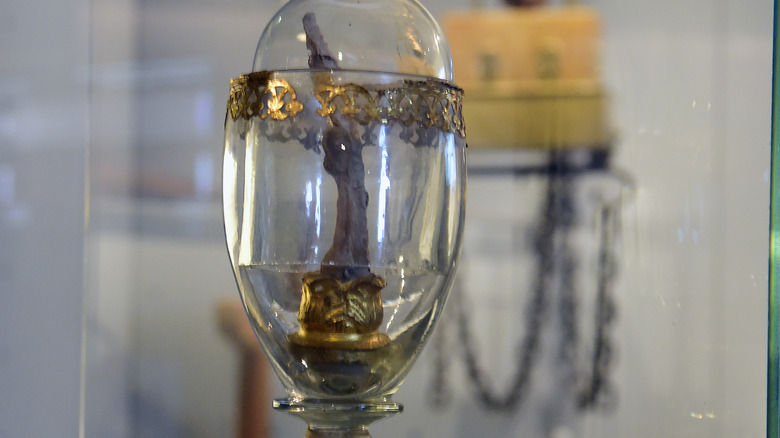
These Body Parts Of Galileo Galilei Are On Spectacle Today At A Museum
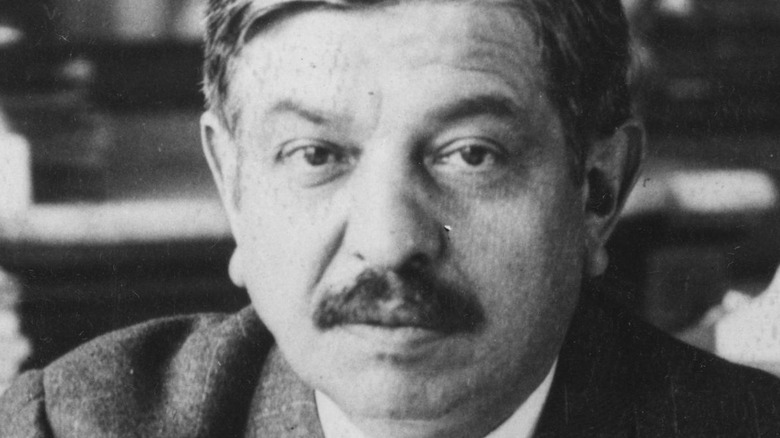
Why Pierre Laval Is Considered A Historical Traitor
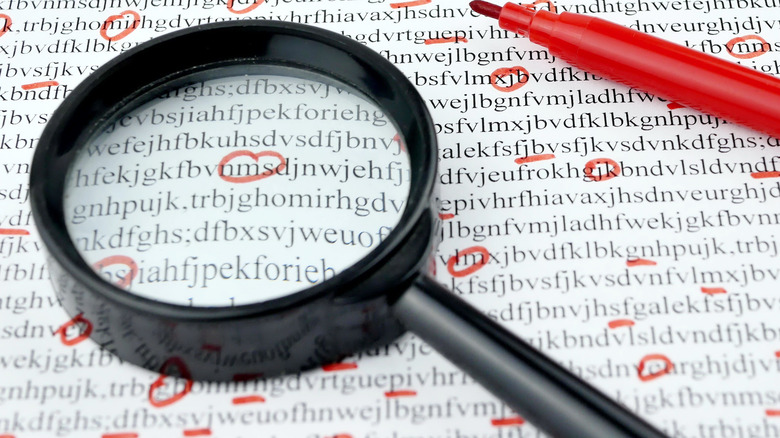
Has The Zodiac Killer's Secret Code Finally Been Cracked?

The Devastating Truth About Anne, Queen Of Great Britain's Children
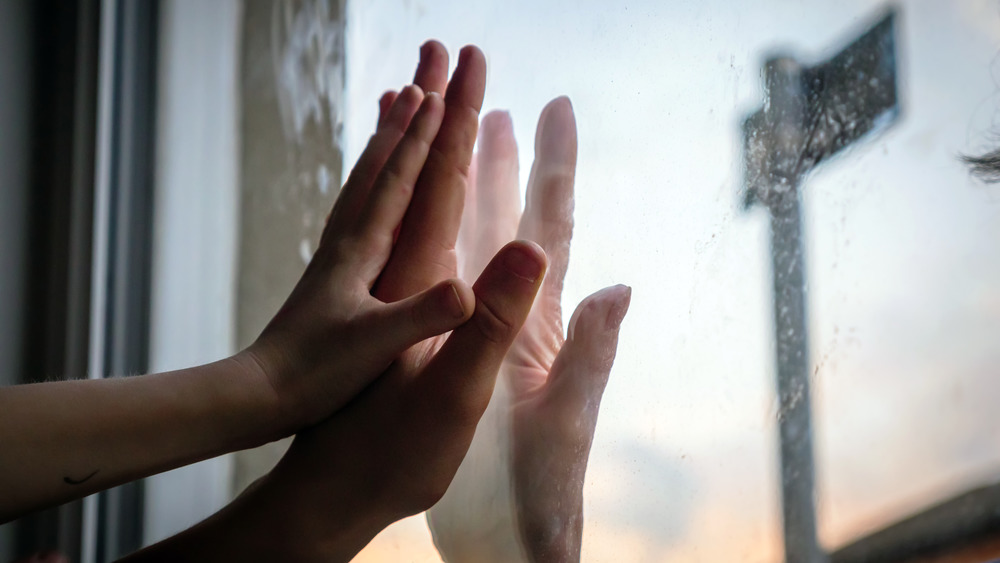
The Truth About Japan's 'Minister Of Loneliness'
